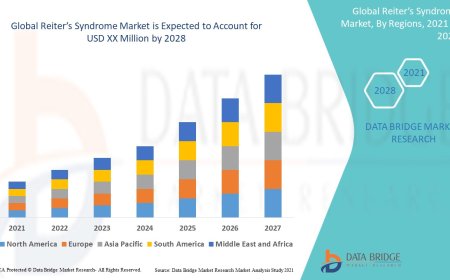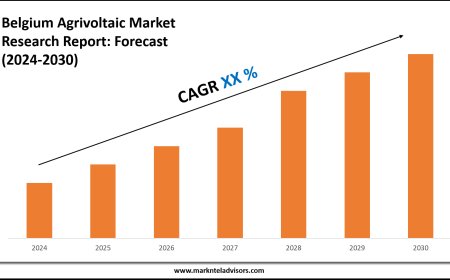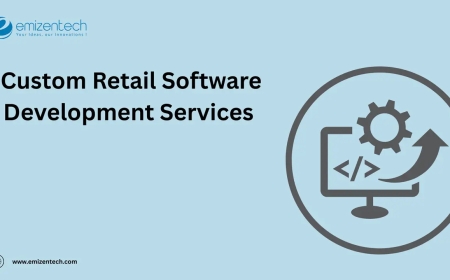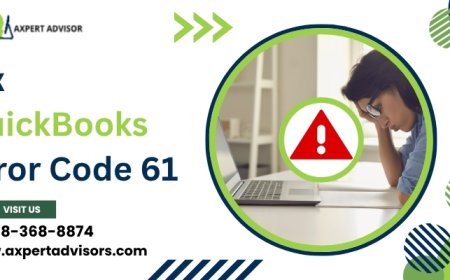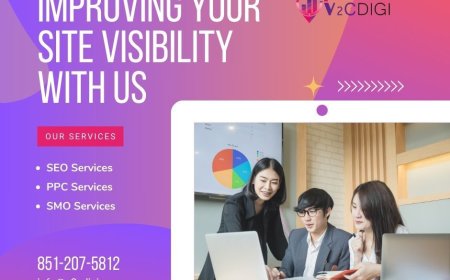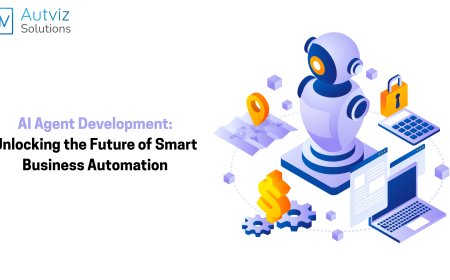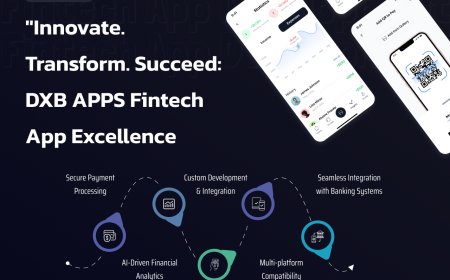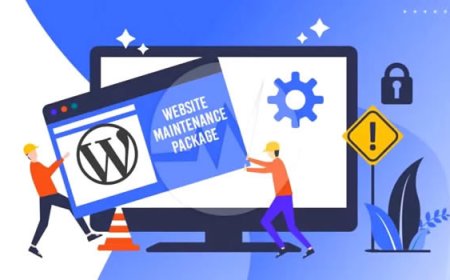How Leading Social Media Agencies Serve E-Commerce Brands in 2025
Discover how leading social media agencies help e-commerce brands thrive in 2025 through AI-driven content, social commerce integration, influencer marketing, and advanced analytics for scalable online growth.

In the fast-evolving digital commerce environment of 2025, social media marketing has transcended traditional boundaries and become a powerful driving force for e-commerce growth. As buying behavior shifts toward digital-first and mobile-oriented platforms, the role of a leading social media company in shaping e-commerce brand strategies is more critical than ever. These agencies bring a comprehensive, data-driven, and personalized approach to help online stores build stronger customer relationships, optimize sales funnels, and scale globally.
This article explores how top-tier social media agencies are transforming e-commerce in 2025 and what brands need to do to stay competitive in a hyper-connected market.
The Evolving Landscape of Social Media and E-Commerce
E-commerce has grown exponentially over the past decade, and its growth has accelerated post-pandemic. In 2025, consumers expect faster transactions, seamless mobile experiences, and hyper-personalized interactions. Social media platforms are no longer just promotional channelsthey are now fully integrated shopping ecosystems.
From Instagram Shops and TikTok storefronts to Pinterest catalogs and YouTube live selling, consumers are actively discovering, researching, and buying products directly on their favorite platforms. To keep up, e-commerce brands are relying on leading social media agencies to manage these complex ecosystems, optimize campaigns, and drive ROI.
Key Ways Social Media Agencies Help E-Commerce Brands Succeed
1. End-to-End Strategy Development
In 2025, generic social media campaigns dont cut it. Leading agencies work closely with e-commerce brands to develop customized strategies tailored to specific business goals, customer personas, product niches, and sales funnels.
They begin by:
-
Conducting competitor analysis
-
Performing audience segmentation
-
Evaluating current social media performance
-
Aligning goals with paid and organic strategies
This helps create a roadmap for content creation, influencer collaboration, social commerce integration, and performance measurement.
2. AI-Driven Content Creation and Personalization
Top agencies leverage artificial intelligence and machine learning to create highly personalized, platform-specific content at scale. AI tools analyze user behavior, engagement patterns, and purchase history to deliver the most relevant content at the right time.
In 2025, expect the following trends in content personalization:
-
Dynamic video ads based on user preferences
-
Auto-generated product visuals for different buyer personas
-
Personalized carousel posts or reels based on browsing history
Social media agencies ensure each touchpoint is optimized to engage and convert.
3. Social Commerce Integration
Platforms like TikTok, Instagram, and Facebook now allow in-app purchases without redirecting users to external websites. Leading agencies assist e-commerce brands with:
-
Setting up platform-native storefronts
-
Optimizing product listings for social discovery
-
Implementing shoppable video features
-
Utilizing platform analytics to monitor buyer behavior
This integration allows brands to shorten the buyer journey and reduce cart abandonment rates.
4. Influencer & Creator Collaborations
In 2025, influencers remain critical to social proof and brand trust. However, the approach has matured. Agencies now use influencer platforms powered by AI to identify creators who align with the brands niche, values, and audience demographics.
Effective collaboration management includes:
-
Contract negotiation and content guidelines
-
Performance tracking and ROI analysis
-
Long-term ambassador program development
By partnering with micro and nano influencers, e-commerce brands achieve higher engagement rates and deeper community trust.
5. Paid Social Campaign Management
The paid advertising ecosystem on social media is highly competitive. Leading agencies deploy sophisticated ad strategies to ensure every dollar spent delivers maximum impact.
Their responsibilities include:
-
Audience retargeting using pixel data
-
Lookalike audience creation for scalable growth
-
A/B testing across creatives and placements
-
Real-time budget reallocation using AI tools
In 2025, machine learning tools allow agencies to predict campaign success and adjust bids dynamically to outperform competitors.
6. Omnichannel Consistency
Top-performing agencies understand the importance of creating a unified brand voice across all social platforms. They ensure that Instagram stories, Pinterest pins, Facebook ads, TikTok videos, and YouTube Shorts all reinforce consistent messaging while being tailored to platform formats.
Agencies also link social media efforts with:
-
Email marketing campaigns
-
SMS-based promotions
-
On-site personalization
-
Customer support automation (via Messenger, WhatsApp, etc.)
This synergy creates a seamless user experience and reinforces brand identity across the customer journey.
The Rise of Data-Driven Decision Making
In 2025, data is at the heart of every successful e-commerce campaign. Leading social media marketing companies provide in-depth analytics and performance reporting that go beyond vanity metrics.
They track:
-
Conversion rates by platform
-
Customer acquisition costs (CAC)
-
Average order value (AOV) by channel
-
Customer lifetime value (CLTV)
-
Attribution across touchpoints
Advanced analytics platforms now integrate with CRM tools, email providers, and e-commerce platforms like Shopify, Magento, and WooCommerce. This integration allows agencies to create predictive models for customer behavior, which improves campaign efficiency.
Important Points
-
Social media platforms have become full-fledged e-commerce ecosystems.
-
Leading agencies provide AI-powered content personalization for better engagement.
-
Social commerce storefronts are now essential for faster conversions.
-
Influencer strategies focus on authentic, long-term partnerships in 2025.
-
Paid ad campaigns are managed using advanced automation and predictive analytics.
-
Unified omnichannel marketing ensures consistent brand identity across platforms.
-
Data analytics and attribution modeling guide marketing decisions.
Bullet Points: Services Offered by Leading Social Media Agencies
-
Social media audit and competitor benchmarking
-
Brand storytelling and visual identity management
-
Custom content calendars with real-time engagement monitoring
-
Shoppable post integration and catalog management
-
Influencer discovery and campaign execution
-
Cross-platform ad management (Meta, TikTok, Snapchat, Pinterest, YouTube)
-
Retargeting and remarketing funnel development
-
Customer feedback loops and review amplification
-
Monthly reporting and insights dashboard access
The Role of Emerging Technologies
Augmented Reality (AR)
AR filters and try-on features are now integrated into Instagram and Snapchat. Agencies help e-commerce brands implement AR experiences that allow users to:
-
Visualize furniture in their home space
-
Try on clothing or accessories virtually
-
Interact with 3D product models in Stories or Reels
Chatbots and AI Assistants
AI chatbots now operate within social apps, providing:
-
Personalized product recommendations
-
Order tracking and customer support
-
Live notifications for discounts and restocks
These tools improve user experience and increase post-purchase satisfaction.
Voice Search Optimization
With growing adoption of voice assistants and voice search in-app, agencies now optimize content and campaigns for voice-triggered queries, ensuring higher visibility and seamless navigation.
E-Commerce Niches Benefiting the Most
Some product categories are seeing exceptional growth through social media strategies in 2025:
-
Fashion and Apparel Influencer collaborations, AR try-ons, and trend-based content dominate.
-
Beauty and Skincare Product tutorials, UGC, and live shopping events drive conversions.
-
Home Decor and Furniture Visual storytelling and AR tools help boost engagement.
-
Health & Wellness Niche communities and expert influencer tie-ups build trust and loyalty.
-
Consumer Electronics Short-form reviews and comparison videos make purchasing decisions easier.
KPIs That Define Success in 2025
For e-commerce brands collaborating with social media marketing agencies, here are some key performance indicators (KPIs) tracked in 2025:
-
Return on Ad Spend (ROAS)
-
Engagement Rate by Post Type
-
Conversion Rates from Stories, Reels, and Live Streams
-
Cost Per Click (CPC) and Cost Per Acquisition (CPA)
-
Video View Completion Rate
-
Follower Growth vs. Customer Growth Ratio
-
Direct Message (DM) Inquiries to Conversion Ratio
-
UGC Volume and Share of Voice
Agencies use these insights to continuously iterate and refine campaigns for better ROI.
Challenges Faced and How Agencies Overcome Them
1. Platform Algorithm Changes
Frequent updates to algorithms can hurt organic reach. Agencies mitigate this with multi-platform strategies, diverse content formats, and consistent ad investment.
2. Data Privacy Regulations
With tighter data regulations like GDPR and CPRA, agencies focus on first-party data collection and privacy-compliant retargeting techniques using opt-in methods and zero-party data.
3. Content Saturation
To stand out in crowded feeds, agencies craft unique brand voices, leverage storytelling, and experiment with formats such as ephemeral content, live Q&As, and AR filters.
What Sets Leading Social Media Agencies Apart
-
Proactive Trend Analysis Agencies constantly analyze emerging consumer trends and platform innovations.
-
Full-Funnel Marketing Mastery They understand how to move users from awareness to conversion through custom funnels.
-
Agile Campaign Execution Teams quickly test and pivot strategies based on real-time performance data.
-
Creative Expertise Agencies house skilled designers, video editors, copywriters, and strategists.
-
Client Education The best firms empower brands through regular training, workshops, and collaborative planning.
Future Outlook: What E-Commerce Brands Can Expect in 2026
Looking ahead, e-commerce brands should prepare for:
-
Even deeper integration between social media and supply chains
-
Growth of decentralized platforms and Web3 shopping experiences
-
Rise of AI-generated avatars as brand ambassadors
-
Voice-first shopping on platforms like Meta AI or Alexa-integrated TikTok
-
Real-time personalization through emotion-sensing technology
Agencies that stay ahead of these innovations will continue to offer unmatched value.
Conclusion
In 2025, the collaboration between e-commerce brands and leading social media agencies is not just beneficialits essential. These agencies are the architects of full-spectrum marketing strategies that deliver personalized experiences, seamless transactions, and scalable results.
From content creation and influencer partnerships to data-driven ad optimization and cutting-edge social commerce, agencies bring the expertise and tools necessary for online brands to thrive in an increasingly complex ecosystem. E-commerce businesses that invest in the right agency partnership now will be the market leaders of tomorrow.










